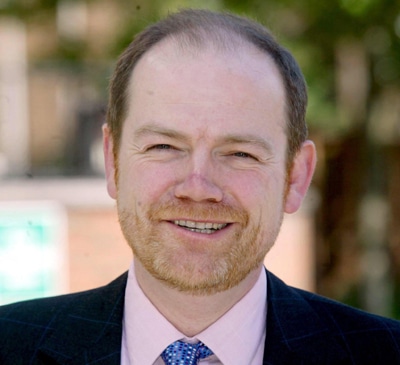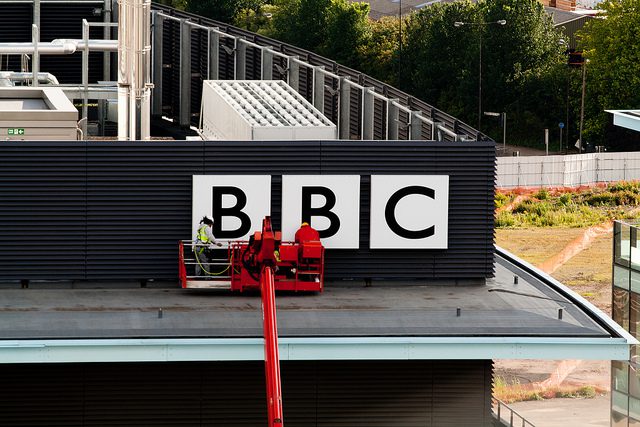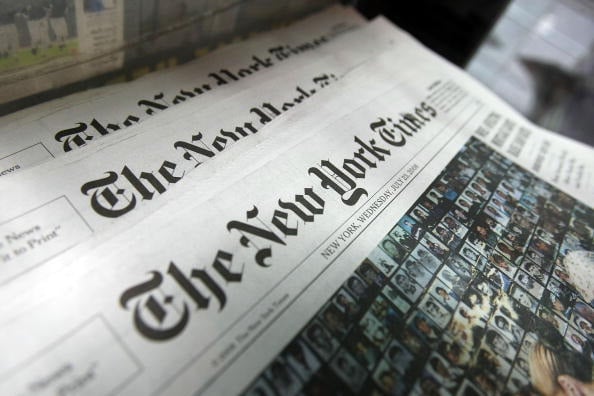
Mark Thompson’s appointment as president and CEO of The New York Times Company is an eyebrow-raiser. But it may yet prove inspired. So who is Mark Thompson, and what will he bring to the Gray Lady?
1. A leader, not an innovator
Explaining its hiring decision, NYT Co. lauds Thompson’s digital savvy, crediting how he “developed innovative new products and generated new revenue streams on multiple platforms”. In fact, this seems to be the main reason for its recruitment.
The BBC is rightly respected for many of its online initiatives. But few close to it would recognise Thompson as the visionary who has kickstarted them.
 BBC iPlayer, the multi-platform catch-up service that has popularised UK VOD, was formulated by then digital director Ashley Highfield, it was taken to the next level by refinements from online controller Anthony Rose.
BBC iPlayer, the multi-platform catch-up service that has popularised UK VOD, was formulated by then digital director Ashley Highfield, it was taken to the next level by refinements from online controller Anthony Rose.
Innovation at the corporation comes not from the top down but from throughout, and often from the technologists who, freed from compulsion to profit, are able to dream up new ideas in audiences’ interest.
This is not to suggest that Thompson is disconnected. He certainly understands all of the fundamental shifts occurring in media, and many of the technological opportunities, particularly those which give greater access to an audience uniquely invested in the content it funds.
But Thompson is more a curator than a creator. He has been blessed to benefit from a natural pipeline of creativity, and has channeled that pipeline’s output effectively to tick all the policy boxes of the public institution he led. If Thompson can rely on similar digital throughput at NYT Co., he could repeat the trick.
Many leaders of large organisations occupy similar roles; such is the lot of a strategic CEO. It would just be misleading to cast Thompson as NYT Co.’s digital guru. As one of Thompson’s former colleagues recently told paidContent:
“He is formidably clever — probably the cleverest guy I have ever worked with; very strong on strategy, gets digital totally – but from 30,000 feet. [He] hasnt ever really had a hands-on digital role but I think he could work as CEO.”
2. Public-spirited, profit-shy
Thompson has only ever worked in public service UK broadcasting – a large and well-respected sector that is legislated to enrich civic life, but not to make profit.
All but four of Thompson’s 33 years in the game have been spent at the BBC, funded mostly by a mandatory £145.50-a-year TV License fee that is a virtual tax. His one stint outside was as CEO of Channel 4, one of the UK’s four advertising-funded but public-service TV networks. That balance reflects Thompson’s driving force – motivated by a higher editorial calling, and a hint of commercial nous framed by that deeper mission.
Is this enough for a publisher in media’s most troubled sector? Just like all newspaper publishers, NYT Co. sorely needs to tap new commercial seams. If it does so whilst marking itself out further for the values of trustworthy, traditional journalism, as BBC News has done, then Thompson could be just the ticket. But, in the tumult of his new seat, Thompson won’t have anything like the luxury of the guaranteed revenue he enjoyed at home.
3. A political operator
One simply cannot underestimate the enormity of the job of BBC director-general. For the last eight years, Thompson has been the custodian of probably the most significant British institution beside the National Health Service.
 Because of both the BBC’s unique public funding configuration and its inclination to jostle just like other media operators, Thompson has had to satisfy both politicians, who want the BBC to stick to its core purposes whilst not competing with commercial rivals, and audiences, who want entertaining content.
Because of both the BBC’s unique public funding configuration and its inclination to jostle just like other media operators, Thompson has had to satisfy both politicians, who want the BBC to stick to its core purposes whilst not competing with commercial rivals, and audiences, who want entertaining content.
So Thompson has had to pilot a super-tanker, while hitting all the high-water marks expected of the BBC by the powers that be. They include not just electors and the elected but also the BBC Trust – the government-appointed custodian and regulator of the BBC’s performance.
In Manhattan, modest, morally-driven Thompson will likely revel in staying true to the editorial ideals and ownership structure of the Ochs-Sulzberger clan. Now he will also have to satisfy not just editorial overseers but Wall Street investors. Yet his experience as steward of the jewel in British media’s crown stands him in excellent stead.
4. Down-sizer in chief
The New York Times should expect a leader who has become accustomed to making things leaner.
The last two years of Thompson’s BBC tenure were marked by his most significant period in charge – cutting thousands of jobs.
 A freeze on the license-fee imposed by the new Conservative-led UK government in 2010 meant a real-terms reduction in the BBC’s £4.8 billion budget. Thompson, foretelling the impending imposition, had already drawn up a cost-cutting strategy but, when it came, was forced to cut further and deeper. The BBC has been making cuts that could total 20 percent, including a 25 percent cut to the online budget. Many delight in the knee-capping of an organisation they consider flabby, others worry that the government is seeking to give advantage to BSkyB.
A freeze on the license-fee imposed by the new Conservative-led UK government in 2010 meant a real-terms reduction in the BBC’s £4.8 billion budget. Thompson, foretelling the impending imposition, had already drawn up a cost-cutting strategy but, when it came, was forced to cut further and deeper. The BBC has been making cuts that could total 20 percent, including a 25 percent cut to the online budget. Many delight in the knee-capping of an organisation they consider flabby, others worry that the government is seeking to give advantage to BSkyB.
The point is – in a newspaper business that is itself contracting, Thompson has lately become accustomed to finding restructuring opportunities.
News publishing requires down-sizing for entirely different reasons than the BBC (industry transformation rather than political ideology). But Thompson has checked the entire corporation’s every service against its core purposes before taking the axe. And he has shown a sensitivity toward unpopular proposals – reversing plans to take one radio station off-air after public protest.
5. Desperate to crack America
Though he has commanded an organisation funded by levy not by profit, the BBC also aims to part-fund itself through commercial revenue earned by its BBC Worldwide division, mostly overseas.
Under Thompson, the BBC has encouraged BBC Worldwide to make a splash in the world’s largest media market – notably by growing carriage for the BBC America channel, beefing up visibility of the BBC World News America show and by launching a commercial version of the heralded iPlayer to deliver subscription internet VOD of classic BBC shows.
Whilst the BBC has found success in driving up adoption of, and commercial appetite for the BBC News website in the U.S., its video initiatives have fared less well. The TV output has not gained widespread appeal, while an iPlayer launch is still held up by cable operator resistance.
Thompson had attempted to export BBC programming around the world as paid VOD under its own brand, having already syndicated effectively through iTunes Store. This is likely the “new revenue stream” the New York Times recruitment announcement refers to but, whilst the project has been rolled out in some European and Australasian countries, it is still in trial, no figures are available to quantify success and U.S. launch is not yet set in stone. Indeed, BBC Worldwide’s digital operations are still loss-making.
Married to American writer Jane Blumberg, Thompson will now have the opportunity to break America at its most famous newspaper. Now all he has to do is save another iconic global media brand from its biggest ever threats.